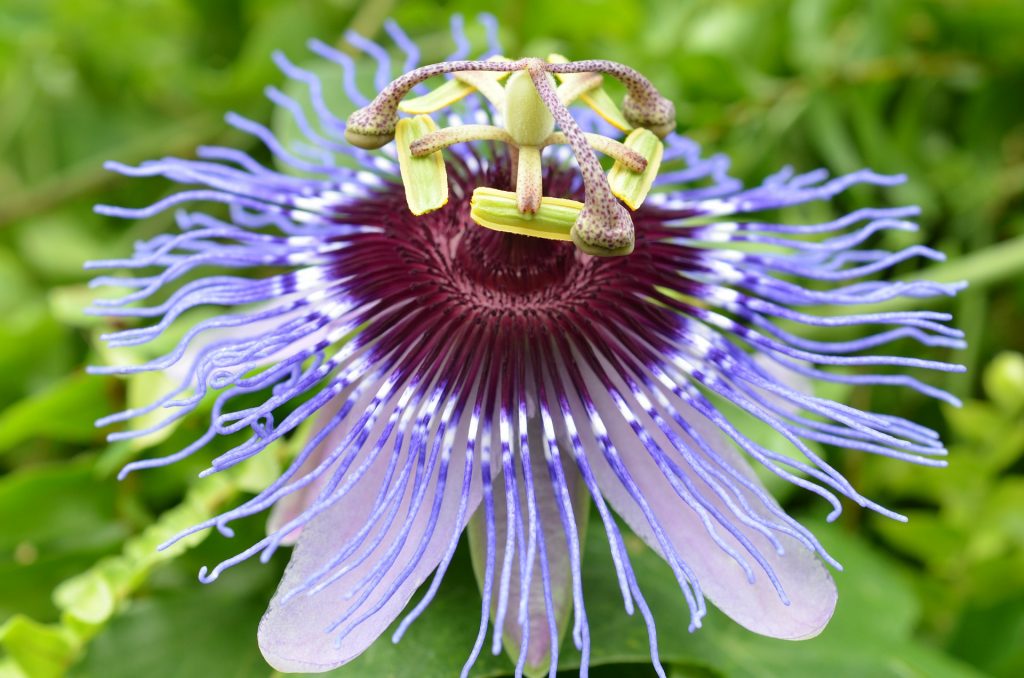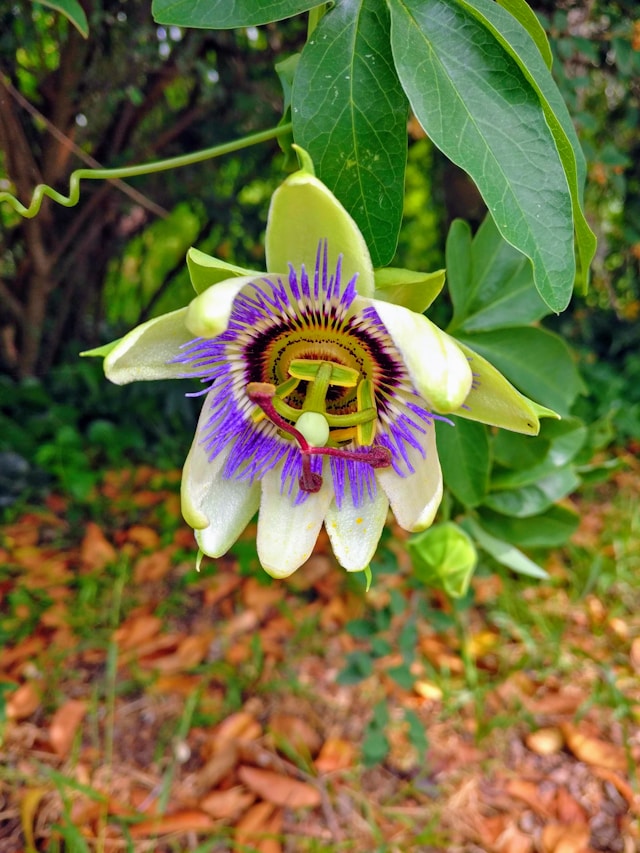Passionflower for Stress and Anxiety

As an herb, Passionflower or Passiflora incarnata, has a long history of use for stress and anxiety (da Fonseca 2020). Studies exploring the effects of passionflower on generalized anxiety disorder, anxiety associated with dental and surgical procedures and insomnia have generally supported the anxiety-lowering effects of the plant. Furthermore, passionflower appears to be quite safe with minimal side effects.
Passionflower for Stressful Situations
Probably the strongest research evidence on passionflower is for its use in stressful situations. A number of clinical trials have administered the herb before dental procedures and surgeries. In one study for patients receiving outpatient surgery, passionflower or placebo was administered 90 minutes before the surgical procedure (Movafegh 2008). For patients receiving passionflower, anxiety levels were 75% lower than for patients who received placebo. Passionflower was also shown to have no sedative or drowsy-inducing side effects.
A separate trial in patients receiving spinal anesthesia, a technique used to numb different parts of the body, administered passionflower or placebo (Aslanargun 2012). Similar to the previous study, passionflower was found to suppress the anxiety usually associated with spinal injections.
Dental procedures are well known to be anxiety provoking. Three studies on the use of passionflower for patients undergoing dental extraction of their wisdom teeth all found passionflower to be helpful for reducing anxiety (Dantas 2017, de Cunha 2021, Christoffoli 2021). The anxiety reduction found with passionflower was similar in potency to standard anxiety medications.
Passionflower and Generalized Anxiety Disorder
Generalized anxiety disorder is a condition of long-standing heightened anxiety or worry that can’t be brought under conscious control. The condition can be quite debilitating and is often treated with antidepressant medications.
In a small trial comparing medication to passionflower for generalized anxiety disorder, passionflower was shown to have an equivalent efficacy (Akhondzadeh 2001). In addition, the medication caused more problematic side effects while passionflower was better tolerated.
Passionflower and Insomnia

Animal studies suggest that passionflower can improve or help induce sleep (Kim 2019, Kim 2019). While human trials are limited, a study did find improved sleep duration in patients with insomnia (Lee 2020). Sleep efficiency and nighttime awakenings also improved with its use.
Passionflower and Withdrawal
Withdrawal from heroin and other opiates is well known to create severe withdrawal effects, including a flu-like syndrome, muscle pain, diarrhea, nausea, vomiting, light sensitivity, insomnia and elevated heart rate, blood pressure and temperature (Shah 2023). In a study of addicts withdrawing off opiates, a standard medication with passionflower or placebo was administered (Alkhondzadej 2001). While passionflower did not help significantly with physical withdrawal symptoms, mental-emotional symptoms were almost halved over the course of the two-week study.
Conclusion
Passionflower is an herb with a long history of use for anxiety and stress. The research appears to indicate significant anxiety-reducing effects that may be relevant for helping to address stressful situations, more generalized anxiety conditions, insomnia and drug withdrawal. In addition, side effects of passionflower appear to be quite mild, usually without daytime sedation.



